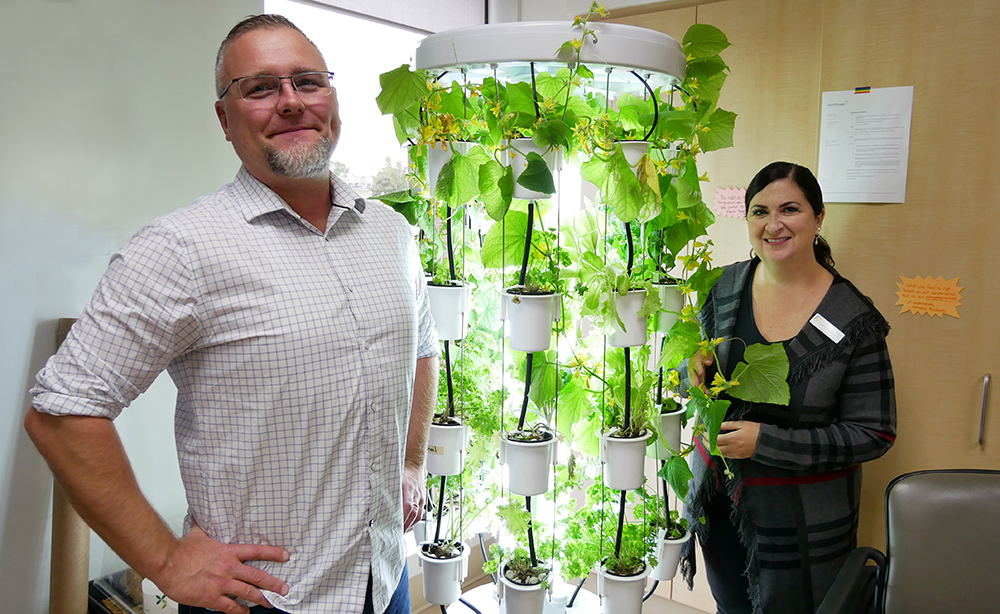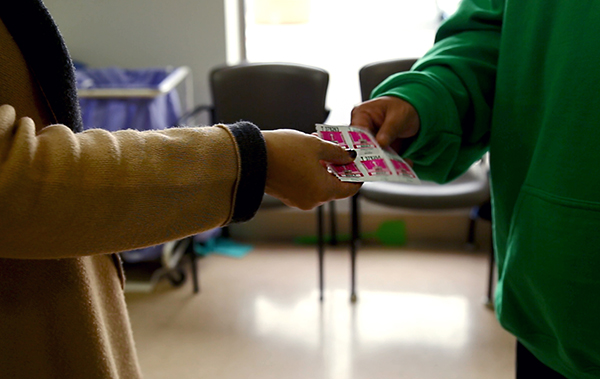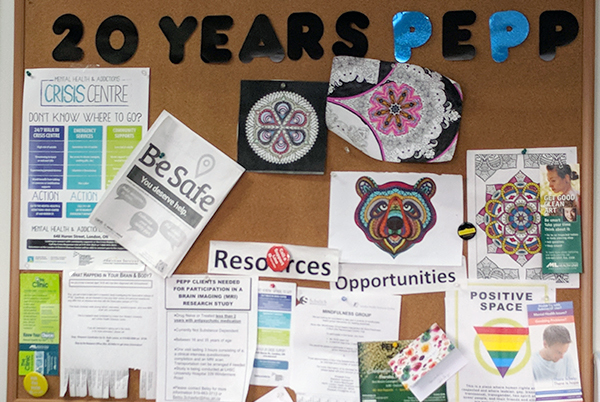
Words can’t quite describe the impact of the Mental Health Patient Assistance Fund, which is 100 per cent donor funded. For those on the receiving end, this fund can be life-saving.
Jake was already a patient of LHSC’s Prevention and Early Intervention Program for Psychoses (PEPP) when he came home from a group session to find his mother had died by suicide in the apartment they shared together. Reeling, he immediately called PEPP. Not only did the program provide psychological and emotional support during this unbelievably traumatic time, but also financial support through the Patient Assistance Fund. Jake received grocery gift cards and bus tickets to help him meet his basic needs, as well as YMCA passes to give him a positive outlet for his mind.
Sabrina, another patient of PEPP, battles with psychosis and has taken long breaks from work to focus on getting well. The PEPP program gave her grocery cards so she could put food on the table, as well as Walmart gift cards, which allowed her to put a few presents under the tree for her young children at Christmas. This has allowed Sabrina to continue caring for her family, while also taking care of herself.
Another patient emigrated from the Congo as a teenager and struggles with memories of his birthplace and a lack of cultural community. For this young man, mental illness led to homelessness until he found PEPP and started on his path to healing.


The Mental Health Patient Assistance Fund is available for patients in emergency, short-term situations when funding from other sources is not available. It provides items such as toiletries, grocery cards, bus tickets, clothing, prescription funding and child care. The fund directly helps about 350 patients each year in the Mental Health program.
This fund also helped launch a new micro-gardening initiative called the Nutritower. Housed within the PEPP program at Victoria Hospital, the Nutritower allows patients to grow herbs and plants that they can then cook and share with other patients, including patients in the Emergency Department.
“It’s been a useful psycho-therapeutic tool that encourages healthy peer interactions,” social worker Adam Gosney says. “They can watch their efforts grow before their eyes.”
Another initiative the fund has supported is a new group treatment modality called Action-Based Cognitive Remediation (ABCR). This program combines the use of interactive technology with a variety of skill building opportunities to optimize cognitive function.
Ultimately, the fund helps patients in profound ways — getting them the necessities and treatments they need to get back on their feet, and then supporting them as they transition to employment and stable housing.
“People often come to us [PEPP] from marginalized communities that are relying on social services support for their bare necessities,” says Heather Lumley, Director of LHSC’s Mental Health Care Program.
“Many are young people who never had the chance to integrate into society that wasn’t chaotic due to their illness, environment or circumstances. Donors essentially serve as these patients’ anonymous surrogates – providing the bridge between a life negatively impacted by mental illness and one where they can get the help they need to enjoy and contribute to their communities.”
